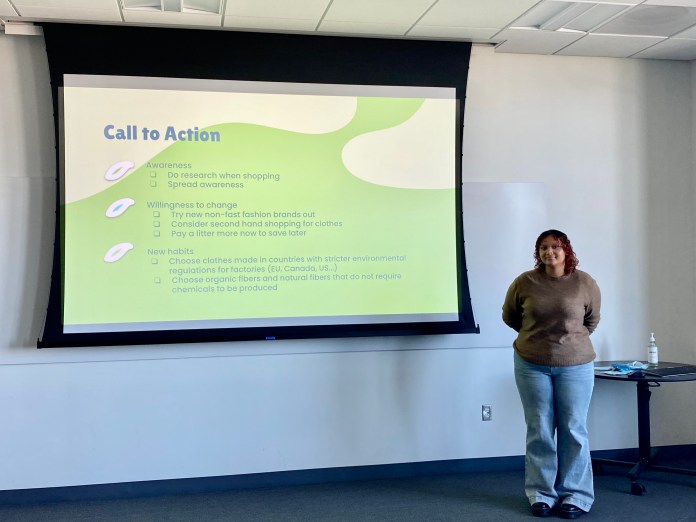Story and photo by Max Guerrera
The Otter Cross Cultural Center (OC3) hosted an event dedicated to educating students about fast fashion on Wednesday Nov. 30.
Fast fashion is when low quality clothing garments are mass produced so they can be sold at a low price. The presentation discussed how this negatively impacts consumers and the environment and provided actions we can take to avoid participating in this harmful process.
The presentation was given by Nadia Pulu, who said “clothing quality has decreased immensely with the emergence of fast fashion.” While low prices attract customers, the poor quality of the clothing encourages even more consumerist behavior. Trends come and go and because the items are made so cheaply, the clothing itself won’t last long either.
Fast fashion is harmful to the environment because items are often made from materials that won’t decompose. The presentation stated that “In America alone, an estimated 11.3 million tons of textile waste – equivalent to 85% of all textiles – end up in landfills on a yearly basis.” 100 billion garments are produced each year and on average, consumers will only wear a piece seven times.
There are also human rights issues surrounding fast fashion. Factory workers for brands such as SHEIN are severely overworked and they make an estimated two – six cents per item. According to Yahoo Finance, the global fast fashion market is expected to increase by $50 million by 2028. These companies are taking advantage of their workers and most customers don’t even end up keeping the products that they buy.
Pulu says that the solution is developing new habits. We can research the brands that we buy from to find their environmental and ethical policies and another sustainable option is to shop second hand. While it may be tempting to buy something cheap for a good deal, we’re better off spending more money on clothing that will actually last.

